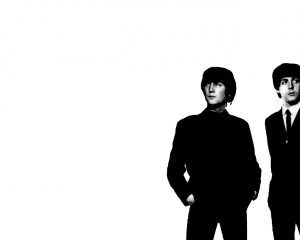 “We often hate each other, but it’s the kind of hatred like flint and steel – the sparks that come out of it make it worth the while”, Penn on his magic partner Teller.
“We often hate each other, but it’s the kind of hatred like flint and steel – the sparks that come out of it make it worth the while”, Penn on his magic partner Teller.
One of the hardest fought categories in the Media Week Awards judging was Large Collaboration. This was a strong shortlist, and whilst the entries were discussed in detail the judges also spent time on the nature of collaboration: how many participants did there need to be to take it out of merely business as usual ?
Whilst the secrets of the judging room must remain sacrosanct under current rules (though I am an advocate of transparency and a judge cam), I can reveal that my feeling is that whatever the number of participants great collaborations are tough to achieve.
There were just two people involved in the case of Lennon and McCartney but their stormy relationship is notorious and was necessary. There can be too much respect floating around. So much niceness that the tough battles don’t get fought that will deliver greatness.
People talk about the need for mutual respect in a collaboration. Mutual disrespect is even better. In great teams the best ideas come when everyone expresses an opinion on everyone else’s territory. The crucial thing is to have a clear focus : the best outcomes for the brand. If the creative shop fires out media ideas and the media agency has an opinion of the creative strategy and the media owners know better than that what to do with the brand to sell it to their audiences then from this creative melange and debate will come the most successful conclusion.
Too much politeness will kill the process. Interviewed in the Sunday Times recently Brent Hobermann, who collaborated with Martha Lane Fox to found Lastminute.com, and is now backing Made.com talks about his reputation for being demanding :”the danger when you’re an adult is that you think everyone has to like you. If someone is wrong I’ll say it.”
Joshua Wolf Shenk, writing in Atlantic, characterises the Lennon/McCartney relationship as “co-opetition, whereby two entities at once oppose and support each other”.
Where there is too much politeness in a team it’s usually due to insecurity. You can reduce insecurity by having rules that ensure everyone feels safe. But you can’t deliver creative brilliance. In a commercial collaboration which do you want as your outcome?